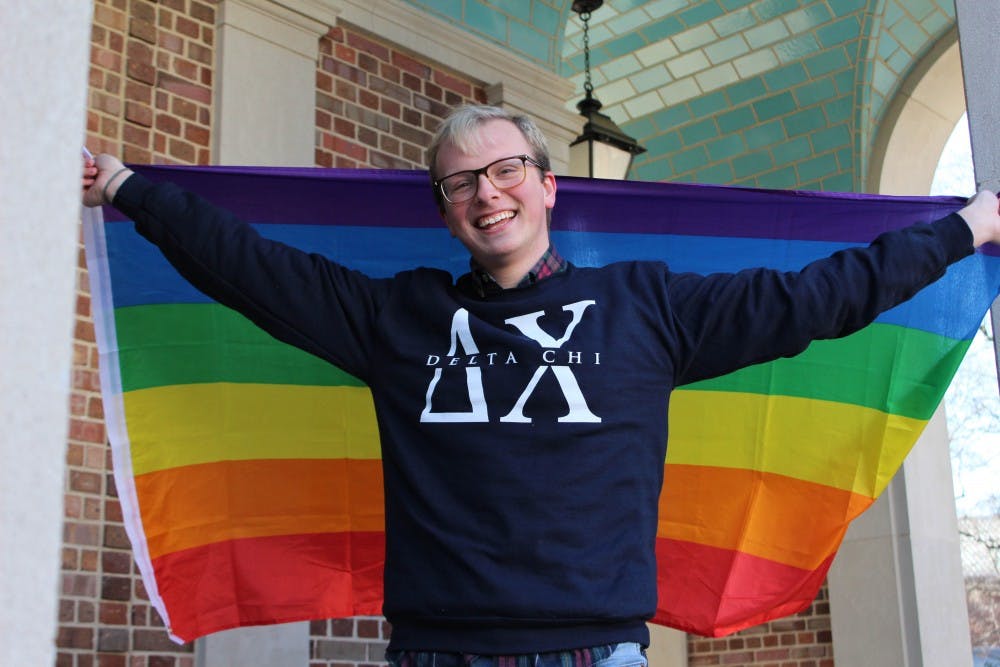Sarah always pictured herself in Greek life. But this year, after rushing, the UNC sophomore was still keeping one element of her identity from her Panhellenic sorority Pi Beta Phi: she’s bisexual.
Sarah, who asked to be identified by a different name to avoid being outed to her parents, did not often see the LGBTQ+ community associated with college Greek life. During rush, she knew Pi Beta Phi had an openly out member.
In 2016, the sorority changed their national bylaws to accept transgender women in an effort of inclusivity.
Still, Sarah feared her sorority sisters would look at her differently if she came out and told them she had a girlfriend.
Around a month ago, after rushing and finding a home within Pi Beta Phi and keeping this part of her identity private, Sarah decided to tell her sisters. A wave of acceptance came along with the revelation that challenged her previous ideas about Greek life and her sexuality.
“I was like, ‘Hey guys, I just want to let you know I’ve been dating this girl for a really long time, and I want to bring her to semi and formal and stuff’ and they were all like, ‘Live your best truth, we support you,’” Sarah said.
Sarah joins a larger group of LGBTQ+ people who have broken stereotypes and made homes in social fraternities and sororities on college campuses.
Sophomore Ryker Smith is openly gay and stumbled into Greek life when a friend referred him to become a founding father of the IFC fraternity Delta Chi. Smith said he saw joining Delta Chi as an opportunity for personal growth as he had previously felt uncomfortable around straight men.
“I’ve grown as a person in that I’ve had experiences I never thought I was going to have, and I’m glad that I’ve had them just because it’s allowed me a new perspective on kind of college life but also just like what it means to be a gay man in the U.S. or at college,” Smith said.



